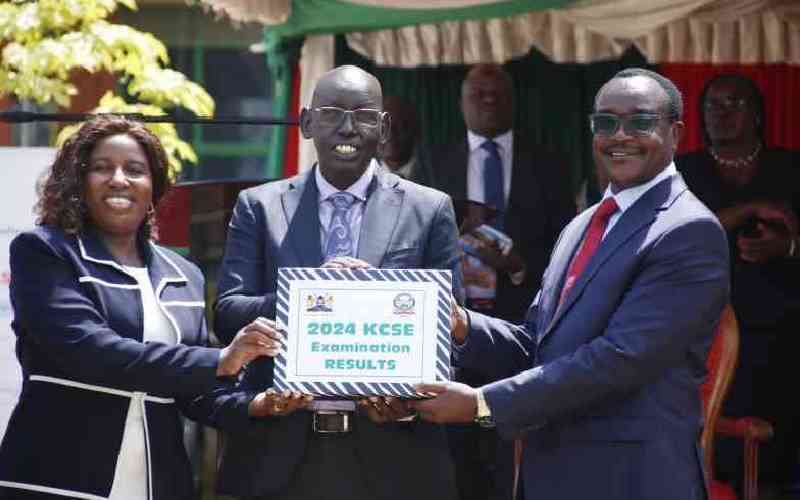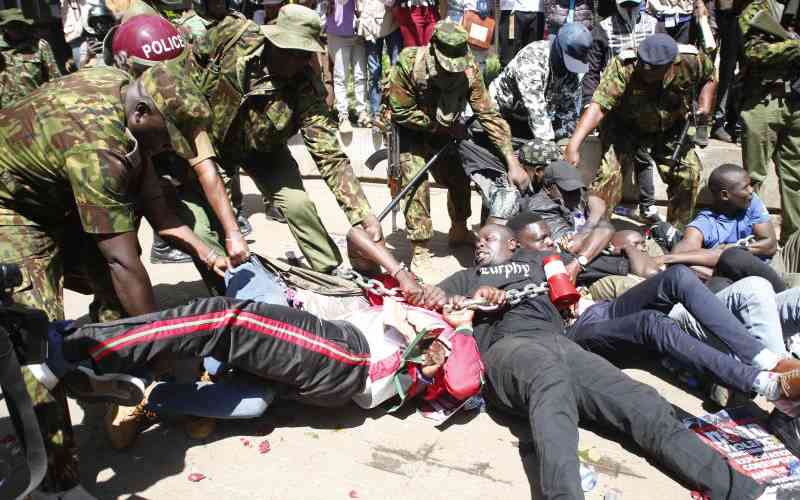For the impoverished residents of Owino Uhuru slums in Jomvu constituency, Mombasa, Thursday’s landmark ruling that awarded them Sh1.3 billion stirred mixed emotions.
Their jubilation was marred by the fact that the abandoned shell of a battery-recycling plant that poisoned their environment, leaving some of them scarred for life, still stands in their midst.
Though abandoned close to a decade ago, the soil and plants around the derelict structure that has caused so much pain and death remain contaminated.
The State agencies that have been found culpable never took responsibility during the long-drawn lawsuit.
Still, the slow wheel of justice has finally turned full circle. Owino Uhuru residents now hope that the High Court ruling will strike a blow against impunity and State negligence.
They expect the State, its agencies and all those found culpable by the court to pay up, and clean up.
Most of the residents either keenly followed the progress of the court case or were regularly updated by the petitioners.
Many gave up
Initially, thousands signed up when the idea to sue was mooted but over time nearly everyone withdrew due to various factors.
Several key witnesses died before testifying. Others simply refused to take the witness stand out of fear for their lives.
In the end, there were only ten names on the petition before the court.
When The Standard visited the slum, the effects of lead poisoning could still be seen among residents.
Alfred Ogola, 64, said his life changed after testing positive for lead poisoning.
“I have been using crutches since August last year after years of pain,” he said.
Ogola has lived in Owino Uhuru slums since 1974. Three of his 17 children also tested positive of lead poisoning and one of them has since dropped out of school.
Stay informed. Subscribe to our newsletter
“Everyone in my family was tested and four turned out to be positive,” he said.
Ogola says he is glad that the case is finally over and justice has been done.
But not everyone is celebrating the ruling. In fact, another storm is building over which people will benefit from the Sh1.3 billion windfall. Elizabeth Mwailu, 73, said she was not sure if she would a shilling of the money awarded by the court.
Her name, she claims, mysteriously vanished from the list of witnesses in the case.
“I was among the people who swore an affidavit and testified before court after testing positive for lead poisoning. I do not how my name was struck out,” she said.
Mwailu, who lives in a single room in the slum, said it has been difficult to take care of her five children.
“I have been taking care of my family after losing my husband. It has not been easy with the pain I have been experiencing since 2015,” she said.
For other residents, Thursday’s ruling came as a relief: they no longer have to hide like fugitives, constantly looking over their shoulders out of fear for their lives.
Wilfred Kamenji has been on the run for five years. He was a key witness and the court immediately put him and his family in the witness protection programme.
For Kamenji, it has been a long, tiresome journey in search of justice.
“While under witness protection, I was moved from one town to the other. I am finally glad that our cry for justice has been heard,” he said.
His two children also tested positive for lead poisoning.
The money awarded by the court might not restore them to full health, but Kamenji says it is good enough, as long as it it comes with a commitment from the government and its agencies to correct a mistake that ruined many lives in the slum he has called home for 17 years.
“While implementing the cleaning of the environment, the government should bring in experts who must work closely with our youths,” he said.
Still, the ruling does not translate to money in the bank, and the residents hope the court’s orders will be obeyed in the hope that their lives will change for good.
Centre for Justice Governance and Environmental Action CEO Phyllis Omido, who led the fight that culminated in the momentous ruling, was overjoyed at the ruling.
“I thank the people for standing firm as they fought for justice,” she said.
Ms Omido was, however, quick to warn against early celebrations.
“It is a journey and it has just began. We have lost so many people from this lead poisoning and we thank God that our prayers have been answered,” she said.
 The Standard Group Plc is a
multi-media organization with investments in media platforms spanning newspaper
print operations, television, radio broadcasting, digital and online services. The
Standard Group is recognized as a leading multi-media house in Kenya with a key
influence in matters of national and international interest.
The Standard Group Plc is a
multi-media organization with investments in media platforms spanning newspaper
print operations, television, radio broadcasting, digital and online services. The
Standard Group is recognized as a leading multi-media house in Kenya with a key
influence in matters of national and international interest.
 The Standard Group Plc is a
multi-media organization with investments in media platforms spanning newspaper
print operations, television, radio broadcasting, digital and online services. The
Standard Group is recognized as a leading multi-media house in Kenya with a key
influence in matters of national and international interest.
The Standard Group Plc is a
multi-media organization with investments in media platforms spanning newspaper
print operations, television, radio broadcasting, digital and online services. The
Standard Group is recognized as a leading multi-media house in Kenya with a key
influence in matters of national and international interest.





